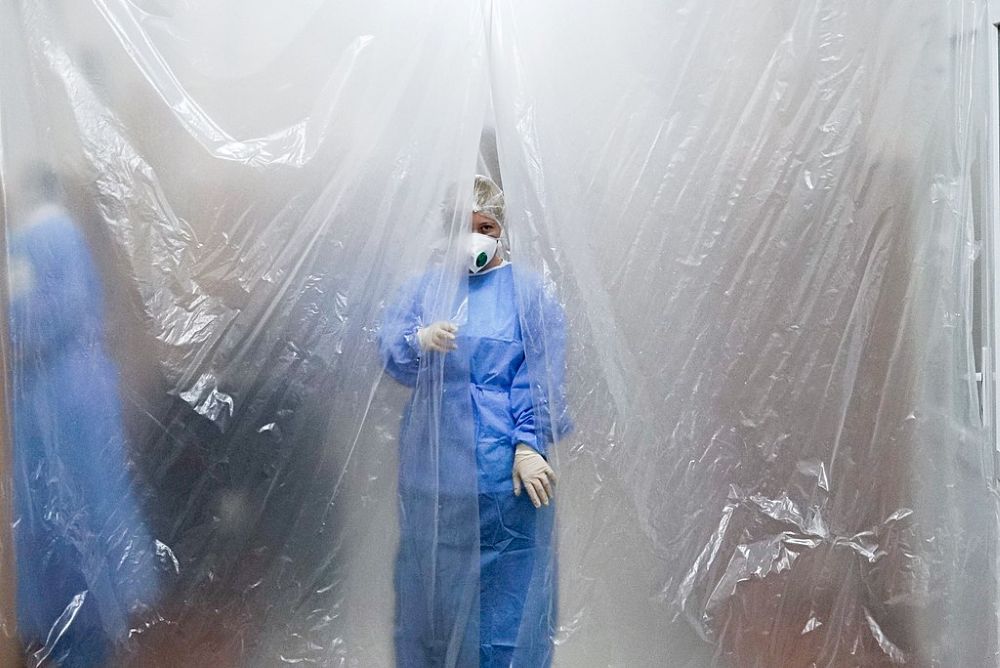

Bodyoids, a new scientific and medical concept that promises to revolutionize medicine, involves human-like bodies grown from stem cells without brains or consciousness. The idea was introduced by three Stanford University scientists in an article recently published in MIT Technology Review.
Imagine a world where organ shortages are a thing of the past, where drug testing no longer relies on cruel practices against animals, and medical treatments are decided based on your specific biology. This isn’t science fiction—it’s the promise of “bodyoids.” These potential scientific creations could transform medicine as we know it, but how far-fetched is such a prospect and more importantly, what are its ethical implications?
Dr. Carsten Charlesworth, Professor Henry Greely, and Professor Hiromitsu Nakauchi are the three Stanford University scientists who proposed the concept of “bodyoids” in an article recently published in MIT Technology Review. These bodyoids are envisioned as physiologically identical to normal human bodies but engineered to lack consciousness or the ability to feel pain.
Human Bodyoids: Awesome or abomination? https://t.co/yZV0AElGBQ
— Kording Lab
(@KordingLab) March 25, 2025
Bodyoids are believed to be the next evolution of organoid technology, which has changed how scientists study diseases and develop treatments for specific conditions. Organoids are tiny, self-organized tissue cultures that are created from stem cells. These have been used to mimic organs like the brain, liver, and lungs, providing scientists with valuable insights into human biology and certain diseases.
Bodyoids are a concept that could advance this idea by developing entire human-like bodies. Before you freak out, note that these bodies will be devoid of consciousness. It claims to be a more ethical solution to organ transplantation and drug testing than we currently do in medicine.
The idea may sound futuristic or even daunting, but it is rooted in decades of stem cell research and has solid scientific foundations.
Stem cells were first identified in the early 20th century. Scientists realized these cell types were uniquely able to differentiate into various other cell types and regenerate tissue.
Advances in the science behind stem cells have now made it possible for scientists to cultivate complex human-like structures that could resemble bodies.

Understandably, simply the concept of bodyoids alone has raised profound ethical dilemmas. While the supposed lack of consciousness answers the opponents’ main points, which are concerns about sentience and the exploitation of living organisms, the idea of creating human-like bodies purely for medical use is controversial at its core.
People who believe in the existence of a soul would argue that a body that is alive will most definitely be a body with a soul. How could humanity justify the use of such bodies quite literally for parts?
Ancient Greek philosophers like Hippocrates revolutionized ethics in medicine with ideas that still resonate today—“Do no harm” is still a guiding principle worldwide for doctors and scientists alike. How would our society and public opinion view bodyoids? Perhaps as a natural extension of humanity’s attempt to conquer disease or a hellish nightmare of unimaginable ethical implications?
Of course, there are those who could argue that we already have examples of similar technologies being used for the benefit of all. For example, consider diabetes—a condition that affects millions worldwide and makes life miserable for many due to its implications. Researchers have already used organoid technology to transform intestinal cells into insulin-producing beta cells, a promising prospect that could help millions. Imagine scaling this up with bodyoids: entire pancreases grown specifically for patients. This could eliminate the need for lifelong treatments and change someone’s life forever.
As we face this medical and ethical dilemma, one question is what needs to be answered before we see the next steps.
Are we ready for it? Are bodyoids the next big thing for medicine and science as a whole? Or is it yet again another step towards a future, where ethical dilemmas are being treated as obstacles to business opportunities and profit?
